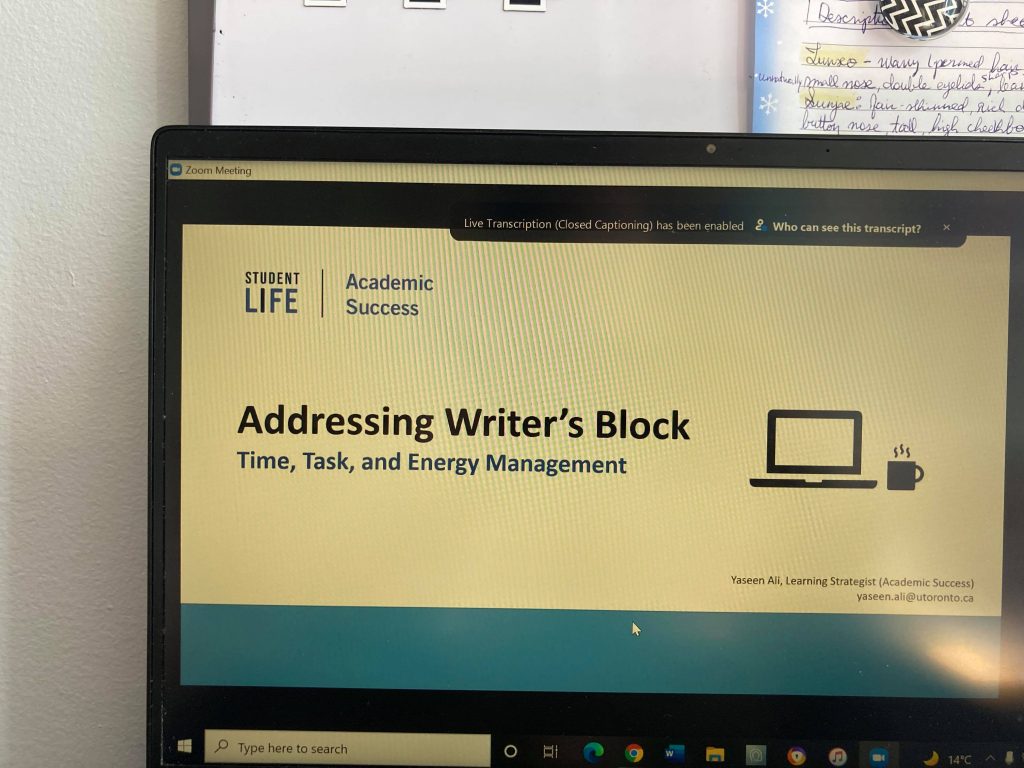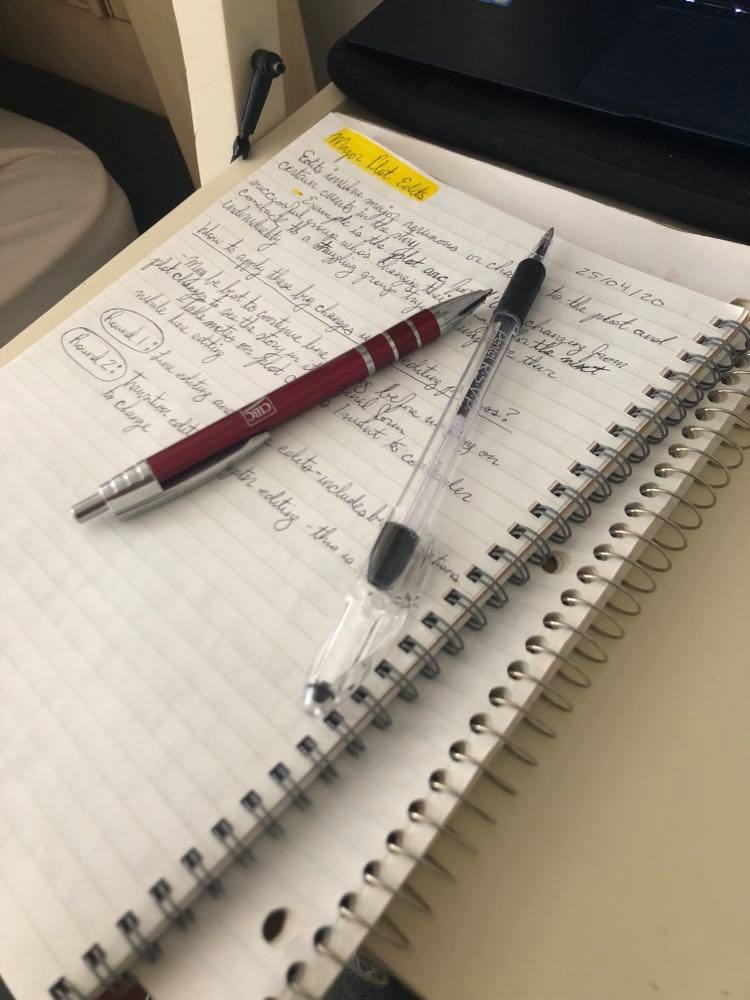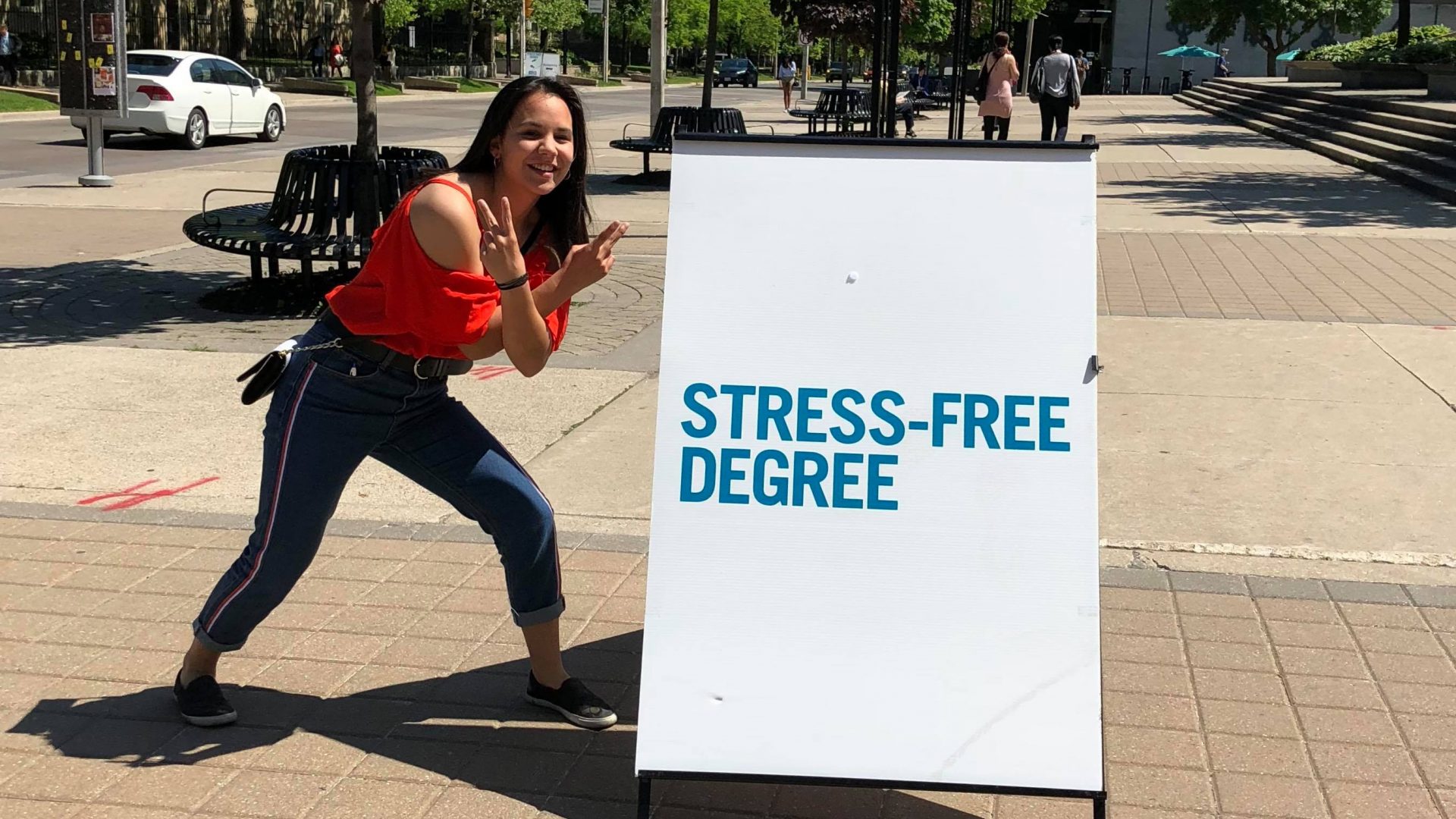As a humanities student, it’s vital that I have my creative (and motivation!) juices flowing for all those papers I’ll be writing this semester. I was on CLNX when I saw this workshop Addressing Writer’s Block a couple days ago; I do creative writing on my spare time and have been battling writer’s block for some time so this event came at the perfect time. I didn’t know what to expect, I was just curious about what approaches would be offered for dealing with that hideous writer’s block. Nevertheless, I was surprised about what I learned!

A learning strategist from Academic Success hosted this workshop. The first thing that stuck out to me was the term energy management. We often hear about time management and how that’s the key to fending off procrastination but this term was new to me. All the time, I think about how I can manage my time, but my energy? Not at all. Energy management refers to how much work you exude in under a period of time. If you’re taking a two-hour session to work through readings or a math problem set, you want to avoid exhausting yourself to burnout. I have the habit of taking an hour or two to get through two readings but sometimes I’ll push myself and say “you can do one more.” While it can feel rewarding if I achieve it, it ultimately leads to burnout. Which then leads to me not wanting to do any work again for the next week.
Addressing Writer’s Block advises beginning a writing session by taking a 30-minute block to do a task you’ll know you’ll achieve in that time window. For me, that can be a brief discussion post, a short reading or answering those important emails. If I’m working on an essay, I would usually review the readings and materials I’m using to support my thesis. Another helpful tip is working at 10%. If there’s a paper or project that is intimidating in length or time-demanding, write the entire piece in a single paragraph. By doing this, you’ll gain momentum and it can ease you into the task better. Writing a summary of what I plan to discuss in an essay is something I’ve done in the past and it’s incredibly helpful!

What I loved about this workshop was how it addressed guilt from procrastination. They advised to reframe that guilt and think about what didn’t work during that writing session and use it as data. It was also interesting how they advised planning for procrastination. The strategy “parking lot” is where you’d write down any distracting thoughts but you don’t follow them until later. What I also realized was how important planning for non-academic activities is. I’m quickly consumed by my academics that I often neglect other areas of my life but planning for non-academic activities actually diffuses burnout. Planning is advised because people often cut those pastimes out if they don’t.
There’s a plethora of things I learned from this workshop and I’m grateful that Academic Success hosts sessions like these. Knowing that I can break down my big projects without getting overwhelmed, my semester of endless papers and academic buzz words feels a little less daunting.
To find more workshops like this visit clnx.utoronto.ca.

0 comments on “Starting the Year By Fighting Writer’s Block”